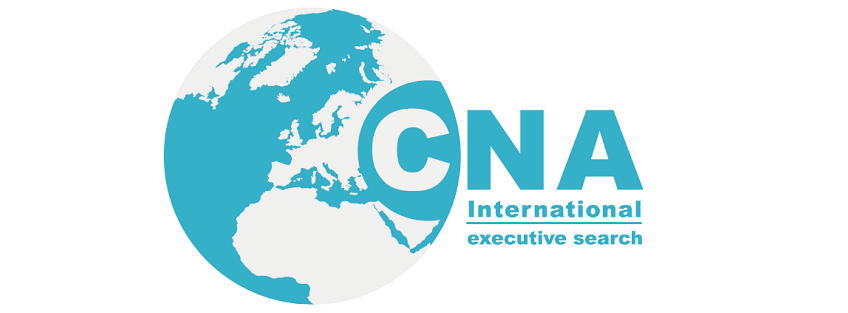A Human Resources Retrospective 2020
Fri | 22.01.2021
Human Resources
At the end of 2020, CNA International surveyed leaders and human resources representatives about HR trends in 2020, as a retrospective of the year.
Please find below some main conclusions:
In terms of HR, 2020 was atypical, unlike any other year. There were drastic changes in HR from manpower demand, work conditions, company’s cultures, methodology for HR processes, motivation, retention, compensation, and benefits, as well as employer branding and career development.
DIGITALIZATION and AGILITY
If at the beginning of 2020 the shift to digitalization was just one of the priorities among others, during 2020 digitalization became the key priority, developing and being implemented rapidly and becoming a major advantage.
2020 made companies realize the need for agility. From the employee perspective, the shift is massive and very consequential people are making new choices about where they want to live and creating new expectations about flexibility, working conditions and life balance that can’t be undone. The majority never want to go back to the old way of working. Only 21% want to return to full-time office work, and 74% want a hybrid remote-office model moving forward, while 5% are undecided.
According to our study the most interesting European locations for our candidates became Austria, Switzerland, and Belgium, while countries like Germany, Holland and Great Britain increased their interest in Romanian candidates. Also, there was a major swift from blue collars demands to white collars and medical specialists.
For 99 % of the participants in the study, 2020 was the year with a quick digital transformation and movement toward virtual everything - interviewing, assessments, coaching, meetings, etc.
REMOTE WORK / WORK FROM HOME
The keyword for 2020 was REMOTE WORK, and for the first time in many years, the interest in part time jobs increased. In only one year (2020) the interest of candidates for remote work tripled.
A little bit over 70% of employees work from home to an extent, and 98% of the participants are willing and interested in working from home at least partially or when needed for the rest of their careers.
The new kid in town – remote work - became a great opportunity of working from anywhere. Roles usually historically done in an office opened to people located anywhere in the world. Lifting geographical boundaries expanded the pool of candidates, as the best candidates are now available from anywhere, so also, many skilled candidates have more options.
Bucharest & Romania are in the top locations in the world for remote work conditions (internet connection, price for living, available catering, legislations, etc.) according to numerous studies including UK Broadband Deals, which makes our market still an attractive one from the employment point of view.
The myth of work-life balance so attractive in the previous years disappeared completely, as the home became the new office, and it was replaced with the myth of working for wellbeing and for safety.
ECONOMICAL CONTEXT INFLUENCING HR in 2020
The number of starts ups in 2020 vs. 2019 was 29% less, and the specific of these startups’ businesses were very adapted to 2020 requirements: online activities, transport / couriers / food delivering and catering, energy, and gases.
Some industries grew – retail, especially food retail and online, catering and distribution, gambling, software development, cybersecurity, IT support and outsourcing, pharmaceutical R&D, medical services, etc., while others such as travel, hospitality, cross boarder transportation and logistics, etc. were really affected.
The most active candidates were in Bucuresti / Ilfov, Prahova and Timis, and the highest offered salaries remained in Bucuresti, Cluj and Timis.
The unemployment rate grew from 3.9 % in Dec.2019 to 5.5% in Dec 2020 according to INS.
THE PANDEMIC IMPACT ON HUMAN RESOURCES
The pandemic impact on human resources is obvious -from lay-offs to technical unemployment, to fully dependency on digitalization, remote work, lack of work life balance, salary decreases, limited means of employee engagement and motivation, as well as few employer branding activities are only few aspects.
Similar, reduction of scope existed in terms of trainings and professional development, as well as mobility, means of motivation and retention, employer engagement, etc. HR budgets were reduced, many compensation and benefits packages were not needed or used anymore, employer branding was minimized to proper internal and external communication of tough decisions taken.
If we look at recruitment for example, throughout 2020, this area suffered from a considerable narrowing of its scope. Many companies have hiring freezes or were downsizing considerably.
Candidates attitude changed as well, as they became more cautious to career changes, keen on stability, on long term planning and development.
Employment engagement, motivation and implication were lowered to many employees due to changes, uncertainty, lack of social interaction, social distancing, fear, anxiety, need for belonging to work communities, etc.
Diversity & inclusion is still a sensitive topic, but easily to be approached due to borderless remote access to a wider international pool of candidates.
In terms of career development - Reskilling, retraining, professional reconversion, as well as IT and digital certifications are the new directions candidates shall consider.
Being employed, having a steady salary, belonging to a company’s culture, participating to any progress became a stronger motivator then it was before. With tighter budgets, cash crunches, supply chain breakdowns, sick colleagues, friends or family members, political outbursts, social distancing, remote work, etc. employees of all ages went beyond stereotypes in order to make connections to the world virtually, accepted crowded schedules and endless Zoom meetings just so they are part of something, and have a paycheck at the end of the month.
The general feeling is that during the Pandemic employees worked more, sometimes lacking logic, meaning or structure, they were forced to take breaks due to sharing the “working space” IT equipments, or attention with other members of the family or due to domestic chores, therefore the burnout effect was imminent in many situations.
Feedback had a very important role in motivating the teams during 2020, as well as assertive communication, transparency, and creation of virtual communities.
OPTIMISM REMAINS HIGH DESPITE SITUATION
While jobseekers shift into new industries, employers, recruiters and HR professionals remain optimistic about what the future may look like as businesses adapt to the many changes in the market across various industries.
According to CNA International study less than 20% of companies are on a total hiring freeze as a result of COVID-19, and 48% believe they’ll emerge post-pandemic stronger, with better strategies and tools.
Some industries are even more optimistic: over 50% of respondents in the software industry believe they’ll emerge stronger, followed by those in infrastructure and constructions (45%), and retail (43%).
Respondents also see the need for ADAPTABILITY as a fundamental skill, as well as the importance of more personalized candidate relationships, with over 70% saying it’s now more important that candidate relationship management tools be built into their applicant tracking system.
One of the most important lesson learned in 2020 is that unpredictable events can change the course of HR. Adaptability, flexibility, self-motivation, planning and organizing, as well as high level of autonomy became top competencies. Feedback, the sense of belonging, progress, wellbeing, and empathy became the top motivators.
2021 will be in some respects a continuation of 2020, but there will also be some changes. We will analyze 2021 HR trends in the February newsletter.
CNA International remains your trusted HR Business Partner ready to offer you customized HR solutions.
This article was provided by our HR Partner, CNA International Executive Search Romania.
2025
-
November (1)
-
October (1)
-
September (1)
-
July (1)
-
June (1)
-
April (1)
-
February (2)
-
January (1)
2024
-
November (1)
-
October (1)
-
July (1)
-
May (1)
-
March (1)
-
February (1)
-
January (1)
2023
-
November (1)
-
September (2)
-
August (2)
-
June (1)
-
May (1)
-
April (2)
-
March (1)
-
February (2)
-
January (2)
2022
-
December (3)
-
November (4)
-
October (3)
-
September (4)
-
August (3)
-
July (6)
-
June (4)
-
May (4)
-
April (8)
- Marketing News by diARK - April 2022
- Finance News by Mazars Romania - April 2022
- Experience the Perfect Chauffeur Transfer with David Intercar
- Mobility News by Business Lease - April 2022
- NRCC MEMBER IN SPOTLIGHT, WOLTERS KLUWER
- Crowe Romania and DeclaratiaUnica.ro engage in the automation of the single return form and the offering of personalized consultancy
- Cryptocurrency News by Bitcoin Romania, April 2022
- Legal News by BBW LAW - April 2022
-
March (6)
-
February (4)
-
January (5)
2021
-
December (3)
-
November (4)
-
October (2)
-
September (2)
-
August (1)
-
July (5)
-
June (3)
-
May (5)
-
April (4)
-
March (7)
- Cryptocurrency News by Bitcoin Romania, April 2021
- HR News by CNA International Executive Search Romania, March
- Real Estate News by CTP Invest, March 2021
- Sale-Purchase of Agricultural Land Located Outside Build-Up Areas
- MEET THE NRCC BOARD CANDIDATES 2021
- Fleet Management – Complete Makeover or Small Adjustments?
- Cryptocurrency News by Bitcoin Romania, March 2021
-
February (5)
-
January (6)
2020
-
December (2)
-
October (2)
-
September (3)
-
August (2)
-
July (6)
- NRCC Member in Spotlight Interview - Autonom
- Insolvency Proceedings: New Rules
- Member in Spotlight, UniCredit Bank
- Financing opportunities overview for large enterprises, SMEs and other organizations
- Companies: Simplification of Formalities
- Call for Leaders | What is your readiness score to benefit from the EU SURE initiative?
-
June (5)
-
May (8)
- The State of Alert. New rules for the collective proceedings
- The Retail Industry
- EU grants up to 6 Mil Euro for SME-s investment projects
- Member in spotlight, Heisterkamp Transportation Solutions
- State of Alert...What Is New
- The forced transformation of the automotive industry – Mazars analysis
- State of Alert in Romania
- Reducing the Impact of the Pandemic
-
April (6)
-
March (2)
2019
-
November (2)
-
July (1)
-
June (1)
-
March (2)
-
January (1)
2018
-
October (2)
-
September (1)
-
August (1)
-
July (3)
-
June (2)
-
May (1)
-
April (1)
-
March (3)
-
February (13)
- NRCC Elections 2018 - Elena Badea
- NRCC Elections 2018 - Loreda Dragomir
- NRCC Elections 2018 - Simina Fodor
- NRCC Elections 2018 - Manuel Herraiz Orti
- NRCC Elections 2018 - Tom Leene
- NRCC Elections 2018 - Mircea Moga
- NRCC Elections 2018 - Ronald Oort
- NRCC Elections 2018 - Razvan Pascu
- NRCC Elections 2018 - Alexandru Popescu
- NRCC Elections 2018 - Mihaela Tudor
- NRCC Elections 2018 - Loredana Van de Waart
- NRCC Elections 2018 - Edwin Warmerdam
- NRCC Elections 2018 - Philip Aarsman
2017
-
November (1)
-
September (1)
-
August (2)
-
May (1)
-
April (2)
-
March (1)
2016
-
November (1)
-
September (8)
-
June (1)
-
February (2)








